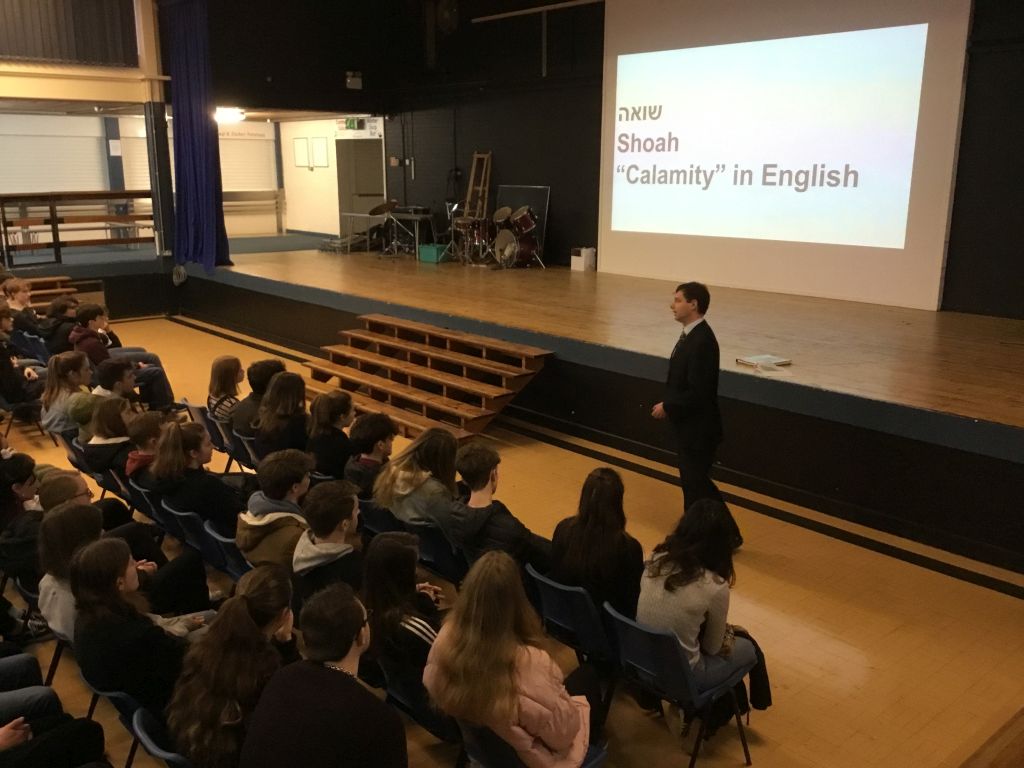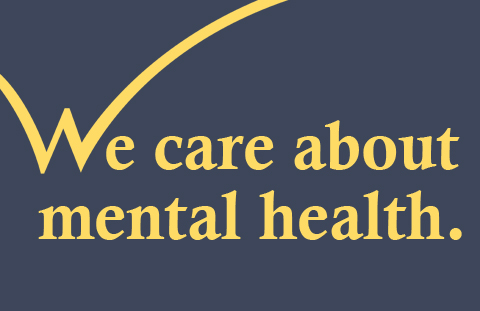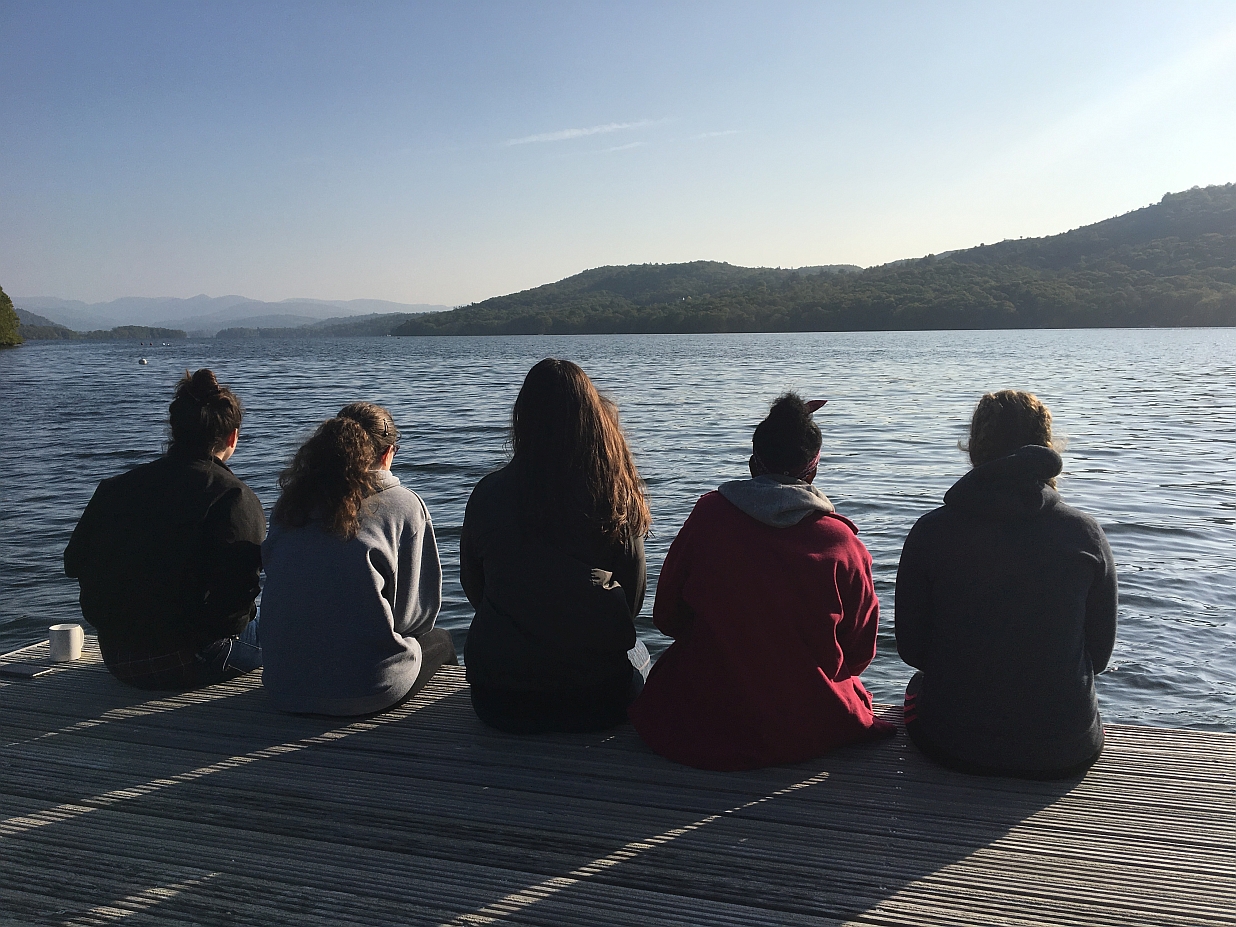Sixth Form News
- Category: Sixth Form News
Sixth form students are taking part in events to mark Holocaust Memorial Day today.
We started with Livvi and Flo, our Auschwitz ambassadors, delivering a presentation to their peers. Students and staff were completely engaged - it was very though provoking.
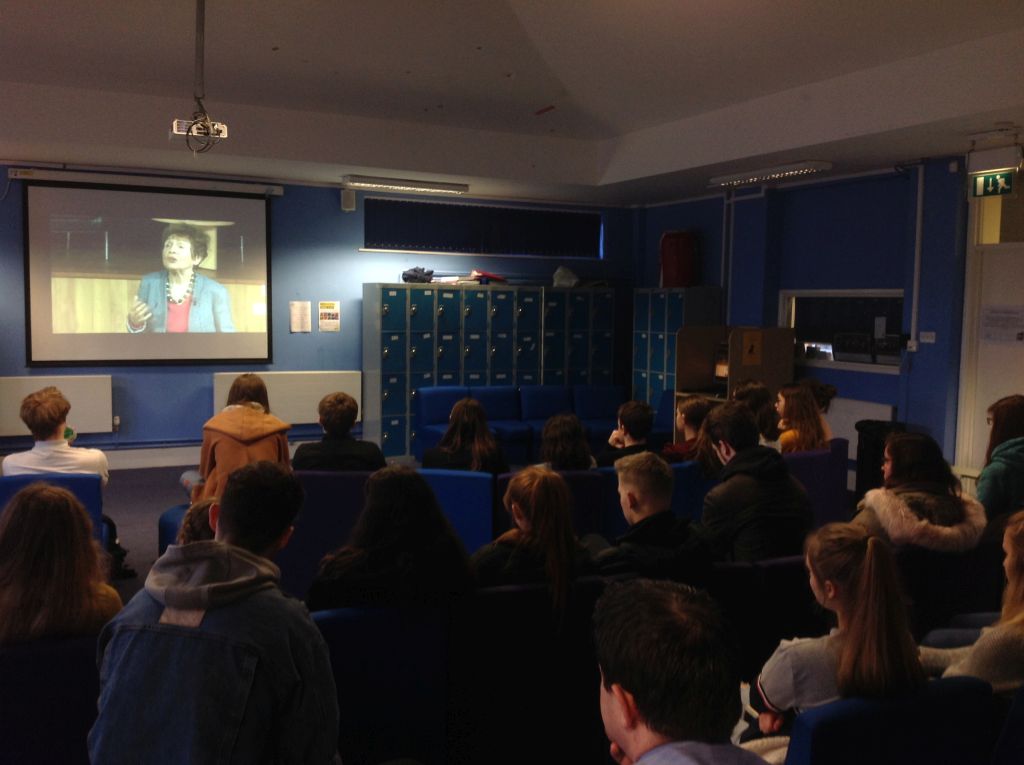
- Category: Sixth Form News
A message from Mr Willis and Mr Domville (Chair of Governors):
We wanted to improve on last year's result at 53% (A* - B), expected about 55% and hoped for 58%. To get 62% is really remarkable. We have many departments that have really excelled themselves. This is the consequence of extremely hard work given the scale of curriculum reforms with which teachers and students have had to contend.
At the top end four students from Wallingford School will be starting courses at Oxbridge this year and a third of all A Level exams sat were A or A*.
It is really impressive that, as a group, the young people who sat exams from disadvantaged backgrounds and those who received bursaries did remarkably well. A disadvantaged student at Wallingford achieves more, on average, than their non-disadvantaged counterparts nationally. That means the school has wiped that disadvantage out and given these young people a crack at life beyond school on better than equal terms.
Success like this is always a community effort. It requires parents, staff and students who all believe in what we are trying to achieve. This ensures that the very brightest are celebrated and encouraged and they in turn show patience and appreciation for those who need to work hard to overcome things that make achievement more challenging. This is underpinned by having not just high expectations for yourself but wanting the best for those around you; adults and young people alike.
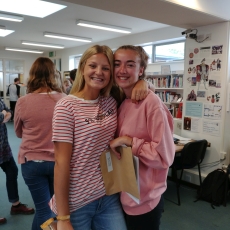 Wallingford is always a great place to work but on days like today: just wonderful.
Wallingford is always a great place to work but on days like today: just wonderful.
A Level Results 2017
Number of pupils: 93
% of entries A* to A: 33
% entries A* to B: 62
% entries A* to E: 99.6
- Category: Sixth Form News
One of the areas that School Officers have been focusing on this year is mental health. We recognise how important this is, particularly for young people who will inevitably encounter many stresses throughout their education. Our aim has been to make sure every student in the school knows what help is available to them, both in school and elsewhere.
As such, we have created some 'Mental Health Help Cards'. These have been given to all students in all year groups today.
We thought we'd share the background of this initiative:
- What we mean by mental health and the importance of it - It is perfectly normal to have ups and downs in your mood. Sometimes you may feel stressed or anxious and other times you may feel positive and confident. However, if these negative or stressful thoughts happen all the time or they begin to have a significant effect on your daily life, this may be diagnosed as a mental health illness. Some common mental health illnesses include anxiety, depression and eating disorders. A mental health issue is something that can affect anyone, no matter how old. Looking after your mental health is just as important as looking after your physical health. Mental health illnesses are more common than you may think, but help is available.
- Mental health illness is not something to be ashamed of - 1 in 4 people experience mental health issues at some point in their life.
- Why the card has been given to students - The purpose of this card is to ensure all students have access to available support should they require it. It is our hope that the vast majority of students will not need to use it.
- What they should do with the card - Keep the card in their purse or wallet, so the information is there should it ever be needed.
We sincerely hope that giving these cards to all students will allow those struggling with mental health to receive the help that they need.
We are also very grateful for the support and encouragement Wallingford Town Council have given to this project - thank you!
All the best,
Helena & Sean (on behalf of the School Officers 2016-2017)
- Category: Sixth Form News
Sunday morning was a very early start (for some more than others) as we set off for the Lake District. Our journey was smooth, with most people trying hard to get some shut-eye. The highlight was reaching our destination, which was beautiful, and we were all excited about the week ahead.
- Category: Sixth Form News
Parliament Week at the Bodleian Libraries, Thursday 17th November
In 1646, as the chaos of the Civil War raged across the land, the Royalist Parliament gathered in a series of chambers in Oxford, owned by the University. It was in one of these rooms, Convocation House, that we gathered over 300 years later. However, our chaos, our monumental event, and, as we were told, the defining political moment of our generation, is not a war. It is, of course, Brexit.
It was part of "Parliament Week" and we, as students of the Government and Politics variety, had been fortunate enough to have the opportunity to attend a session on post-war Britain's relationship with continental Europe and, by extension, the EU. This began with a series of lectures by academics from the University's Department of Politics and International Relations. These spoke of the history of the relationship and the significance of the referendum result. We were also asked to consider Britain's future outside the EU.
However this was a prelude to the grand event wherein, after having been given a rather up-market buffet lunch, we were ferried away from the modern library complex to the stone pillars and wooden benches of Convocation House. Here we were to participate in a discussion about the referendum, with a panel that was a picture of the British Political Landscape: Labour's Will Straw who served as executive director of Britain Stronger in Europe, Ken Clarke MP who is regarded as a "Big Beast" within the Conservative Party and the House of Commons, Caroline Lees of Reuters, and BBC journalist Chris Bowlby.
They spoke of the failures of the remain side to gain momentum, the passing of the 1972 European Communities Act and how the Commons has changed since then, and the idea that we are living in a "Post-Truth" world. After this we were given the opportunity to bombard the panel with questions and, as the event began to end and the other schools filter out, we stayed behind and started many dialogues with the panellists.
- Jody, Year 12


